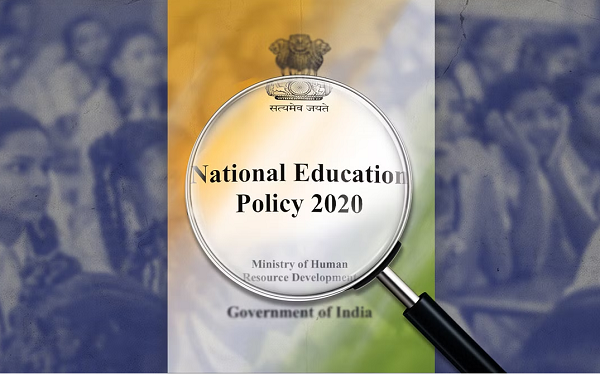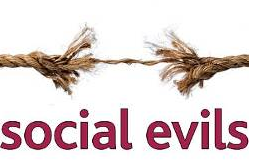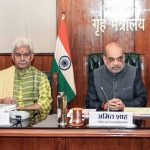Dr. RITU BAKSHI & SHIVENDRA SHANDILYA
In 1986, the Last National Policy on Education was developed. Revisions to the policy were made in 1992. Numerous changes have been made since then, requiring a review of the Policy. The NEP 2020, the first education policy of the twenty-first century, succeeded the National Policy on Education (NPE), 1986, which had been in effect for 34 years. This policy seeks to transform India into a thriving knowledge society and a global knowledge superpower and is aligned with the 2030 Agenda for Sustainable Development. It is based on the fundamental pillars of Access, Equity, Quality, Affordability, and Accountability.
The National Education Policy Draft Mentions about Holistic education has a long and rich history in India. In ancient India, the goal of education was not only the accumulation of information as a means of preparing for life in the real world or life after school but rather the full realization and freedom of the self. The New Education Policy strongly incorporates ancient Indian history in its efforts to make India a global leader in the field of knowledge. This new policy is based on a liberal art approach in higher education and is high-quality research-oriented.
Professional Degrees in Indigenous Languages
Promoting multilingualism and offering vocational/professional degrees in Indian languages are two of this policy’s most crucial components. The NEP underlines the significance of making top-notch specialized information accessible through free online learning platforms. To guarantee that all students have access to high-quality educational content, copyright-free educational resources, including textbooks, reference books, videos (ideally with subtitles), teaching-learning materials, etc., will be created and curated from local, national, and international sources at all levels of education and in a variety of Indian languages. These resources will then be made available in a single repository. This repository has to be set up so that anybody can easily discover and download all relevant materials. To reach as many students and instructors as possible, it will be made simpler and encouraged to disseminate this knowledge in any format for a little fee.
Universalisation of Education enriched in Indigenous Ethos and Culture
National Education Policy talks about the establishment of Special Education Zones Throughout the nation, which will be established in underprivileged areas. It is well recognized that there are disparities in development between areas, even within States that overall outperform the nation on metrics of human development. Data shows that certain geographic locations have a considerably greater percentage of students from Under-Represented Groups. States would be urged to designate any region that can be easily defined as SEZ based on observable socioeconomic and social development indicators. For every rupee the State spends in these Zones, the Central Government would fund further investments and per-child spending in the ratio of 2:1. These additional funds will be used for a variety of initiatives, including the execution of the Policy, that are necessary to improve educational performance in these areas.
According to previous All India Survey on Higher Education (AISHE) Reports, Cities such as Bengaluru, Pune, Jaipur, etc are having the highest College density in India. In contrast, we can observe the Purvanchal region (UP&Bihar), which has a high population density but fewer education institutes. To overcome this regional disparity, NEP mentions Mission Nalanda (MN) and Mission Takshashila (MT) which will ensure a sizable number of high-quality Type 1, 2, and 3 institutions are in place by 2030. The Rashtriya Shiksha Aayog (RSA) shall establish these missions. By 2030, Mission Nalanda will guarantee that there are at least 500 Type 2 Higher Education Institutes (HEIs) and 100 Type 1 HEIs operating successfully in each region with fair regional distribution. Every district in India will have at least one high-quality HEI established as part of Mission Takshashila, and districts with larger populations will have two or three of these HEIs, each with student housing.
Quality Education through NEP 2020: ATAMNIRBHAR BHARAT
The environment in which education is provided has an impact on its effectiveness as a necessary investment in both human and economic development. The National Education Policy 2020 has inculcated an extremely relevant component in its policy document and that is the inclusion of Indigenous Traditional Knowledge in the curriculum of both school education as well as higher education. The twenty-first century is all about innovation and inventiveness and the worldwide integration of information & research.
The educational institutes need to pay more focus on the integration of Indigenous Knowledge (Lok Vidya) in the curriculum at all levels by mapping the local opportunities and skill-gap analysis at regional levels. After struggling through the pandemic situation, everybody realized the need for a skill-driven society to sustain one’s own livelihood as well as to make our nation Atam-nirbhar (self-reliant). Somehow, the main aim of imparting vocational education or skill-based education is to create an Atam-nirbhar youth, so then contributing towards Atam-nirbhar Bharat.
Rapid social development is causing complexity and uncertainty in society, according to critical and analytical thinking. Children and teens must be taught analytical and critical thinking skills as well as attitudes that will enable them to be more adaptable and creative in dealing with national and international challenges. Nearly 34% of India’s population is under the age of 25, and if given the correct encouragement and guidance, they may be powerful forces for development and change. Most of the youths of the age group (below 25) who are studying in different institutes can bring tangible changes within the years after getting quality education from the institutes. Youth is a sign of optimism and is a vital part of the Aatmanirbhar Bharat Plan. So the educationists and administrators need to build a skill-oriented educational environment in educational institutes, thereby enabling the students to develop their potentialities and make contributions towards becoming tart of Vocal for Local and ATAMNIRBHAR BHARAT.
Internationalization of higher education through relevant education, Institutional Collaboration, Research collaboration, offshore campuses, and operation of foreign universities in India, which will surely help in global international student mobility as mentioned in the NEP 2020 Policy Document and will help in achieving the goal of Atma Nirbhar Bharat
(Dr. Ritu Bakshi is an Associate Professor Department of Educational Studies at Central University of Jammu & Shivendra Shandilya is a Research Scholar at the Central University of Jammu)









